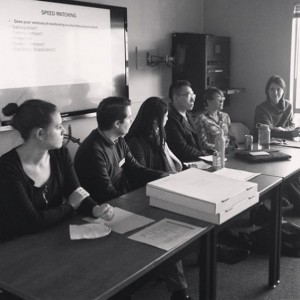For those of you who were unable to attend the event, here is some important information for Go Global, Ethnographic Field School, Sociology Mentorship Program, and Sociology Honours Program.
 Go Global
Go Global
Looking for more information?
James Leeder, Outgoing Advisor. james.leeder@ubc.ca
Student Perspective
- There are a lot of scholarship offered through Go Global
- Application process was easy, staff were very helpful
- Challenging to be away from home (i.e. banking, accommodation)
- Her classes were focused on independent study
- Joined the Sociology Society in their university
- Suggested to take advantage of social and academic opportunities on campus
- Beneficial to apply a sociological lens on the environment even outside the classroom
- Take time with your graduation
- Can go to Couse Transfer Database to see what other courses have transferred back before
- All academic courses should transfer back in some way, it’s just a matter of the level
Ethnographic Field School
- 6 week-long intensive summer program. Therefore, you are expected to focus on the field school without work or other extra-curricular activities
- Counts for 6 credits
- The project coordinator will partner you to work with a community organization to complete a project
- There are field trips included for the participants (i.e. neighbourhood walk)
- Applications open in February, deadline on March 10th at noon. Visit the website in January to look at a sample course outline.
- There are only 28 spots, but 65 applicants on average
- Participants need to pay a $300 fee that goes towards organization honourariums and other fees
Student Perspective
- Did the program in 2014 with Tom Kemple
- Great skills to learn in general, not just for the program (i.e. ethnography, research skills)
- Sometimes the projects started quite early, such as 6am shifts to distribute food to people in the DTES
- Daytime filled with the opportunities, evening filled with assignments and essay writing. Therefore took up a lot of time.
- Spent around 10 hours including meetings, time at the organization, planning
- Sometimes can maintain lasting relationships with the organizations (i.e. volunteering, getting a job)
- Helps to take a class with Kerry (or Tom, in his year) to have a theoretical knowledge before taking the class
Looking for more information?
Professor Kerry Greer, kerry.greer@ubc.ca
Website: http://uefs.arts.ubc.ca/
Sociology Mentorship Program
Looking for more information?
Nicole Malette. Soci.mentorship@gmail.com
Sociology Honours Program
- Should have supervisor lined-up in the spring of the year before you write the thesis
- Thesis itself is a piece of original research
Student Perspective
- Did it in his fourth year to take time to write a good thesis
- Knew the topic first, and then found a supervisor
- Went to supervisor with lit review, proposal, etc. already finished
- Suggestion to reduce course-load while doing the honours
- Recommend to travel to conferences and workshops to talk about your research. And should be able to travel for free from research, using available grants.
- Could use your honours thesis for your academic writing sample for grad school
- Be intentional with the classes you choose to take in order to find a strong supervisor
- His project was 8,500 words (40 pages)
Looking for more information?
Professor Tom Kemple, kemple@mail.ubc.ca
Website: http://soci.ubc.ca/undergraduate-program/honours-in-sociology/
